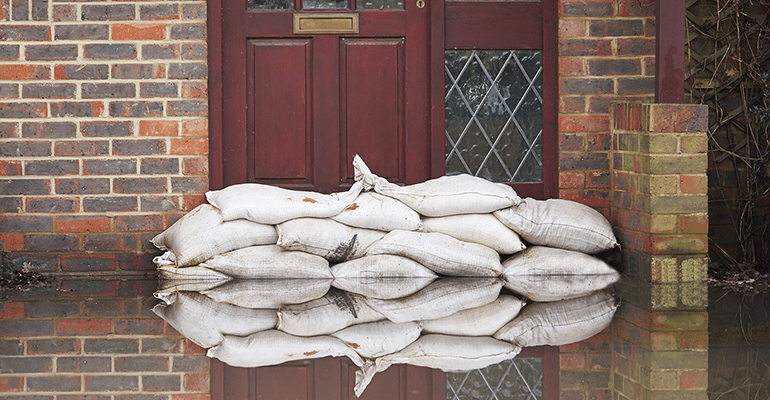
Dealing with emergencies at your rental property.
When something goes wrong at a buy-to-let property you own, it’s your job to sort it out. It’s not something you should delegate to your tenant, and simply promise to reimburse them after the fact.
Engaging with a lettings agent can take much of the pressure off, as they will take responsibility for arranging the necessary work and access. But if you’re managing the property directly, the guidance below may be helpful.
Contact your insurer
As a condition of any buy-to-let mortgage you have in place on the property, you’ll need to arrange buildings insurance. This will give you someone to contact in the event of a major accident, such as damage caused by fallen trees, flooding, high winds or fire. Your insurer will take charge of securing the property, arranging repairs, and returning the property to a rentable condition.
What’s provided as part of a landlord insurance policy can vary, so read the details of the cover carefully. You may want to ensure your policy covers lost rent and alternative accommodation if the property becomes uninhabitable.
Have a list of reliable tradespeople handy
From time to time, you can expect to have to deal with a minor issue that needs resolving quickly. This is because you’re responsible for ensuring the security of the property, as well as the power, heating and sanitation equipment (e.g. toilet and bathing facilities).
At short notice, you could need the services of a:
- Electrician
- Plumber
- Handyman
- Locksmith
- Gas/heating engineer
- Drain specialist
Save their details in your smartphone in the ‘Notes’ section, or create a phonebook entry for each under a name you can remember (‘Electrician’, etc.). It’s probably a good idea to have more than one of each saved, just in case the first is unavailable though illness or holiday.
An alternative is a landlord home emergency insurance policy. This covers problems with central heating, plumbing, electrics and so on, for a single monthly fee – often with no call-out charges and the cost of boiler repairs included.
Arranging access to the property
When starting a new tenancy, you should detail in the agreement the rules about access to the property. While this typically means giving 24 hours’ notice, you’ll probably find your tenant wants any problem sorted as soon as possible.
Regardless, you should always retain a key so you can access the property if your tenant isn’t around to let tradespeople in. Naturally, you should only let yourself (or someone else) in after getting your tenant’s agreement.
If the property is uninhabitable
What happens in the event of a major incident (fire, flood, etc.) should be outlined in your tenancy agreement
You have two main options:
1. The tenancy terminates, and the tenant is free to walk away and arrange somewhere else to live.If this is the case, you should address what happens to their deposit in the tenancy agreement.
You may take the view that it depends on how the property damage came about. Perhaps you’ll refund it for anything out of the tenant’s control, like flooding or fallen trees caused by extreme weather. But you could reasonably retain the deposit on the basis of negligence if it’s (for instance) a major fire caused by an unattended chip pan, overloaded plug sockets or a lazily-discarded cigarette.
2. Your tenancy agreement remains in place.You should, in this case, also outline responsibility for arranging (and paying for) alternative accommodation in the tenancy agreement.
If your tenant must pay for their own alternative accommodation, they’ll no longer pay rent to you. You can claim for the lost rent on your landlord’s insurance, if you have any. If you take responsibility, they’ll continue to make their normal rent payments. You’ll need to pay for alternative accommodation yourself, or claim the cost back through your landlord’s insurance

